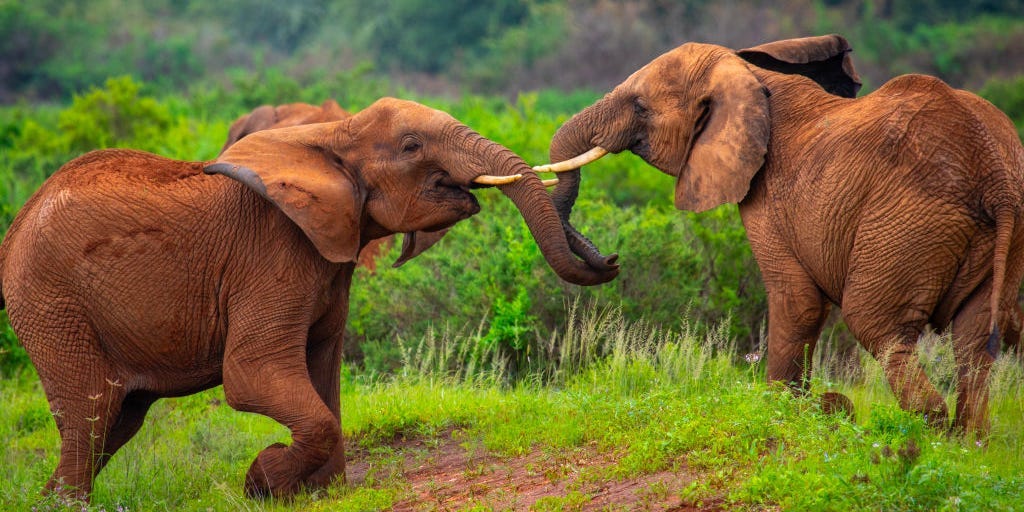- Using AI, scientists have discovered that elephants are likely to have unique names for each other.
- Machine learning was used to analyze hundreds of elephant calls recorded in Kenya between 1986 and 2022.
- The ability of elephants to recognise name-like calls suggests that they may be capable of abstract thought.
In a new study, scientists using AI tools have found that elephants are more likely to have unique names for each other.
A group of scientists used machine learning to analyze hundreds of recordings of wild African elephants recorded in Kenya between 1986 and 2022, and published their findings on Monday in the peer-reviewed journal Nature Ecology & Evolution.
Specifically, the researchers looked at three types of communication, or “calls,” between endangered elephants: “contact calls,” which elephants make to call other elephants more than 50 meters away, “greeting” calls, which elephants make when they are in close proximity to one another, and “care” calls, which female elephants make to comfort their calves.
Other types of cues, such as “let's go” signals, were not analysed because elephants would be unlikely to use a specific name in such situations, the authors explained.
During each of these types of interactions, the researchers found evidence that the elephants called each other by their own unique names — the first time such behavior had been observed in a non-human animal.
Unlike dolphins or parrots, which mimic the sounds of others, these elephant calls are not imitations of individual elephants.
They are more conceptual, like the names humans use for each other.
This may mean that elephants have greater abstract thinking capabilities than we previously realized.
The researchers used machine learning models to interpret the acoustic structure of each call and determine which elephant was being spoken to. Michael Pardo, the study's lead author, told Business Insider that this wouldn't have been possible without the help of AI, because humans alone are not capable of detecting and distinguishing between patterns in elephant calls.
In their study, the researchers explained that when they played back calls originally intended for one elephant, that elephant responded differently to calls intended for another individual.
The researchers posted a video to YouTube that showed the mother elephant listening to a playback of her daughter's calls, and when she heard them, she lifted her head and called back.
Pardo said captive elephants respond to names given to them by humans, like dogs and cats, but “this is one of the few examples of animals calling each other by name or name-like terms.”
Although the researchers were still unable to pinpoint which parts of an elephant's call contain the elephant's name, they noted that each call also simultaneously encodes characteristics of the person making the call, such as their age, sex, emotional state and behavioural status.
The authors explained that while there was mixed support for the hypothesis that different elephants use the same names to call fellow elephants, “there was at least some agreement between different callers addressing the same recipient. It's also possible that all elephants in a family use the same name to call a particular member,” they wrote.
“This suggests that elephants understand an abstract connection between any sound and the individual it refers to,” Pardo told BI, adding that if elephants can understand abstract names, it may be possible for them to think abstractly about other things, too, which the study authors say may be why elephants use names for other objects.
“This may tell us something about how a key prerequisite for language, vocal learning – the ability to learn to make new sounds – evolved,” Pardo said. “It's rare among animals.”
And this research doesn't just help us understand elephants, it helps us understand ourselves.
“This suggests that our human ancestors may have first developed vocalizations by learning to call each other by name, which then allowed for the development of full-blown language,” Pardo told BI.
This means that names may have preceded the language itself.
Pardo said the study not only shows how intelligent elephants are, but also how important social connections are in their lives, just like in humans.

